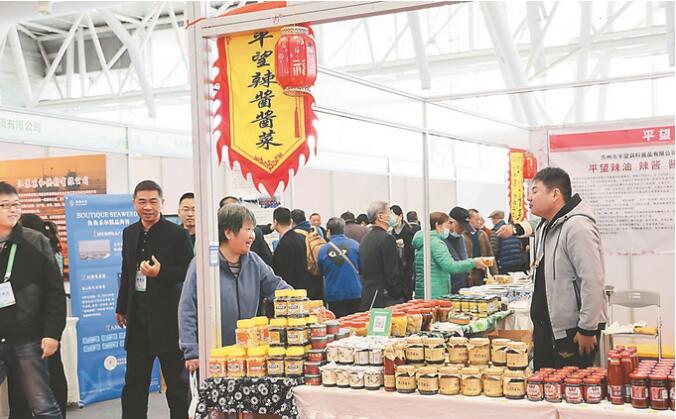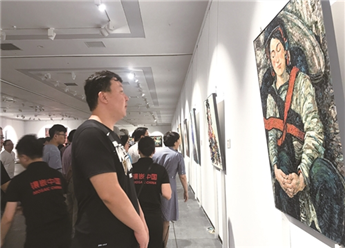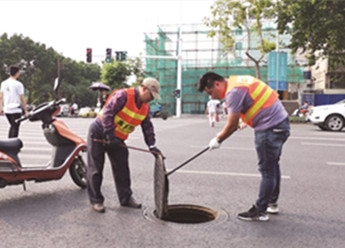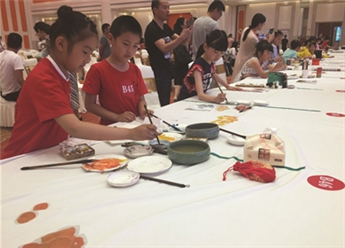江苏的魅力就是人

在金陵日本语交流会的演讲与分组讨论
十几年前,是我第一次来江苏旅游,目的地是苏州。苏州被叫做“东方的威尼斯”,名不虚传,我看到了非常美丽的街道、河水慢悠悠流淌的运河,感动得一句话也说不出来了。苏州园林也吸引了我。中国四大名园之一留园的太湖石所展现出的自然美是在日本从没见过的。那时我没想到后来我居然能住在这么漂亮的中国。
2012年10月我在南京定居了,因为我丈夫被派到南京工作,我陪他一起来到了这座城市。过了五年直到现在我还记得那天。我到达南京的当天是国庆节的假期,城市里充满着欢乐的气氛。天高气爽,桂花盛开,闻到我最爱的桂花馥郁的芬芳,我的心情一下子舒畅了。
我的新生活就这样开始了。除了“你好”和“谢谢”以外,一句汉语都不会说的我就在南京师范大学开始了我的汉语学习之旅。历史悠久的南师大,像公园一样美丽的随园校区,把年近花甲的我当做一个普通留学生接收了下来,并且南师大的老师们给予了我耐心细致的汉语教育。
学习汉语的同时,为了能更快地融入中国生活,我去外面,在超市、饭馆儿、健身房里积极用汉语和南京人交谈。那时我刚刚开始学汉语,水平还很差,所有人听到我说的汉语,都露出一副莫名其妙的表情说“听不懂”,但是他们又总是耐心地听我把话说完。其中一个我家对面汤包店的老板娘每次都对我笑脸相迎并且坚持听我说话。有时我问她汤包的做法,有时她问我日本人的生活习惯。我很喜欢和她一起这样漫无目的地闲聊,因为通过跟她的交流,我知道了很多中国的习俗和中国人的想法。这样一来我对中国的理解更加深了。
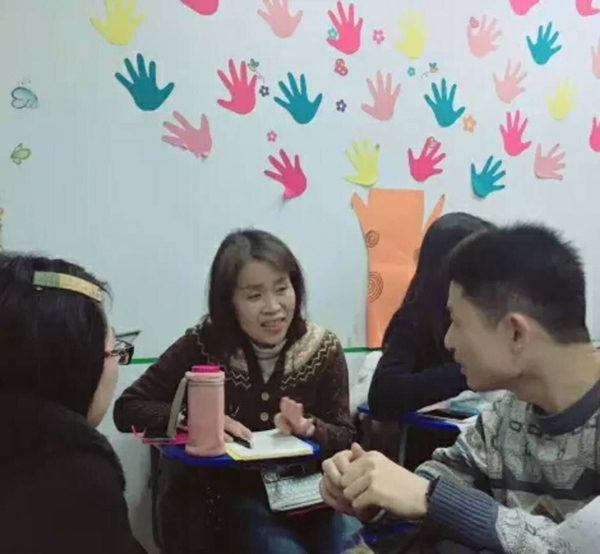
在金陵日本语交流会的演讲与分组讨论
偶然认识的中国朋友也很热情。她是已经退休的数学老师。我们经常去南京的名胜古迹玩。有一天她约我一起看昆曲,因为昆曲是江苏省的古典戏剧,她一定要让我去看看。我这才知道她为自己的故乡,就是江苏感到自豪。我们看昆曲的时候她向我小声解释其中的故事。多亏了她的解释,让我能十分享受昆曲并在其中感受到了她的关怀。我现在也忘不了她的热情。她是我独一无二的中国挚友。
除了她们以外,我认识了很多该尊敬的人。她们都爱学日语并且对日本文化感兴趣。我们经常交换关于日语和日本文化的看法,同时我向她们请教汉语和中国文化。有时我陷入学习低谷的时候,她们总是安慰我并鼓励我,因为她们都知道学外语的困难。在她们的支持下,我重新振作精神又开始坚持努力学习。她们都是我的人生之师。

汤包店老板娘和我
我来南京已经是第五年了。平时努力学习汉语,同时利用周末和假期我跟我丈夫经常一起去旅游。天目湖、宜兴、无锡、扬州、高邮等等,去过很多地方,在每个地方都相遇了很多人。在宜兴买紫砂茶具的时候,老板亲切地介绍紫砂陶的特点。到无锡去玩的时候,我的中国朋友一直陪着我们游览无锡的景点。我们在扬州迷路的时候,一位扬州人帮助了我们,他把我们送到了火车站。现在回想起来,我的周围总是有很多亲切并热情的人,他们都是江苏人。南师大的老师也是,汤包店的老板娘也是,我的中国朋友也是,我的人生之师也是,在旅途中遇到的很多人也是。
与我相逢的江苏人,他们的共同之处是总是带着微笑接纳我这个日本人。我的中国生活是靠江苏人的温情支撑下来的。如长江一样悠然的态度,如太湖一样宽大的心怀,我觉得这样的形容正是表达江苏人,同时我也认为江苏的魅力就在人。我的中国生活还剩下十个月的时间了。明年我就要回日本了。在剩下的日子里我要珍惜每天的生活,并怀着报恩的心情跟中国人更好地交流。
作者:城石叶子(日本)
译文
Common People – the Charm of Jiangsu
Shiroishi Yoko(Japan)
I once traveled to Suzhou more than a decade ago. It was my first time to visit Jiangsu. Suzhou is known as "Oriental Venice" and it does deserve this reputation. I was touched beyond words when I saw the beautiful street and slowly flowing canal. I was also attracted by the classic gardens of Suzhou. Taihu Lake Stones in the Lingering Garden, one of China's four greatest gardens, have the natural beauty that I have never found in Japan. At that time, I never dreamt that I would live in such beautiful China.
In October 2012, my husband was assigned to Nanjing because of his work. So, we have settled in this city since then. That was five years ago when I arrived in Nanjing in the National Day holidays. I still remember that day when the whole city is full of fun. The flavor of my favorite Osmanthus fragrans in the fresh air of the autumn immediately cheered me up.
And so, a new life began for me. I could hardly speak Chinese except "hello" and "thank you" at the very beginning. So, I went to Nanjing Normal University (NJNU) to learn Chinese. I, a woman who was close to sixty years of age, was accepted as a normal overseas student by NJNU and began my study trip in the park-like Suiyuan campus of this centuried university. Teachers of NJNU taught me Chinese patiently and meticulously.
In addition to learning Chinese, I also wanted to fit into Chinese lives. So, I often chatted with Nanjing people in Chinese in the supermarket, restaurant and gym. At that time, my Chinese was too poor to be understood. I could read from their expressions that they could not get what I said, but they still heard me out patiently. The landlady of a steamed bun shop always smiled at me while listening to me. Sometimes I asked her how to make steamed buns and sometimes she asked me about Japanese lives. I like those small talks with her because I can learn much about Chinese custom and thoughts and know more about China.
I made an enthusiastic Chinese friend by accident. She is a retied math teacher. We often visit scenic spots and historical site in Nanjing together. One day she insisted to invite me to a Kun Opera show because Kun Opera is the classical opera of Jiangsu. I knew at that time that she was proud of her hometown, Jiangsu. When we wer enjoying this show, she explained stories of that Kun Opera Show in a whisper for me. Her explanation helped me enjoy that show and showed her concerns for me. I cannot forget her enthusiasm. She is a unique Chinese friend of mine.
Ialso met many other honorable people who liked Japanese and were interested in Japanese culture. We often exchanged ideas about Japanese and Japanese culture. I also consulted them about Chinese and Chinese culture. When I was in low ebb of learning, they always comforted and encouraged me because they knew the difficulty in foreign language learning. With their support I got up steam and continued my learning. They are all my life mentors.
Ihave been in Nanjing for five years. Except learning Chinese, I also travel with my husbands in weekends and holidays. I have been many places such as Tianmu Lake, Yixing, Wuxi, Yangzhou and Gaoyou and met many people. When we bought purple clay teapots in Yixing, the shop owner courteously introduced the features of violet sand earthenware. When we visited Wuxi, my Chinese friends accompanied with us to scenic spots of Wuxi. When we got lost in Yangzhou, a Yangzhou man offered help and sent us to the railway station. In retrospect, there are so many kind and enthusiastic Jiangsu people around me, such as teachers of NJNU, the landlady of the steamed bun shop, my Chinese friend, my life mentors, and those people we met in journey.
Those Jiangsu people I met always accepted me, a Japanese, with smiles. It is the warmth of Jiangsu people that support my life in China. Their attitude is as leisurely as Yangtze River and their mind is as wide as Taihu Lake. In my view, the charm of Jiangsu is its people. I will be back to Japan in the next year and my life in China is less than ten months. In the remaining days in China, I will cherish every day and associate with Chinese people with a grateful heart.






